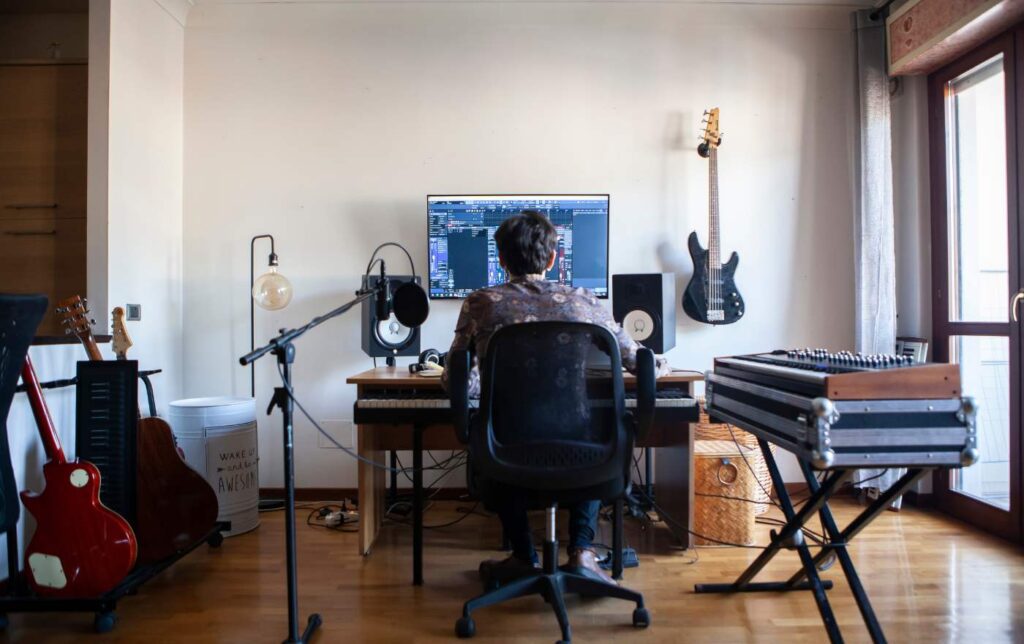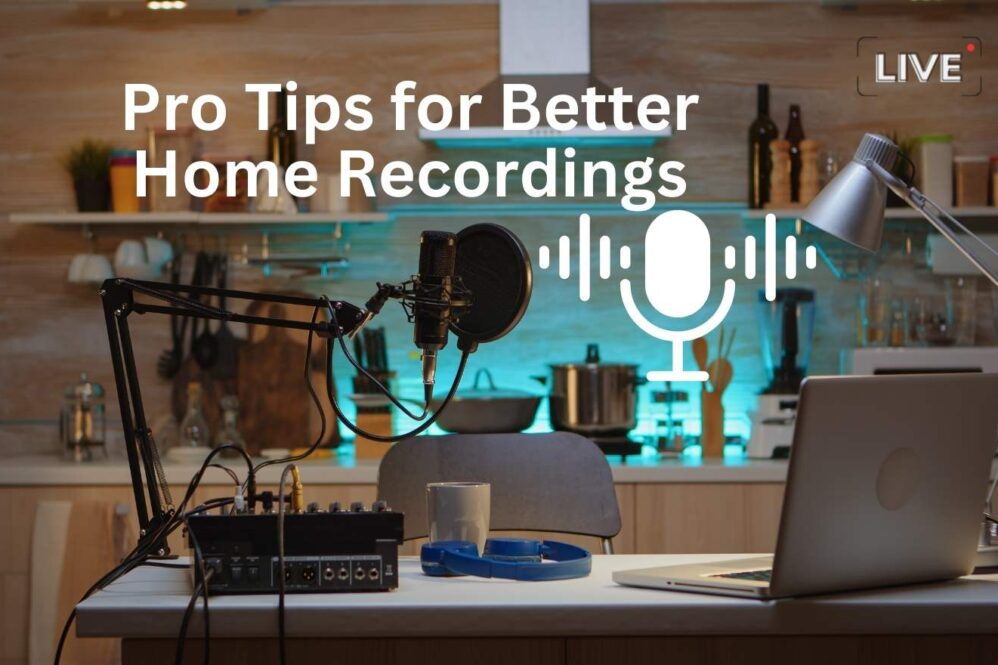Let us delve deeper into the topic and see how you can incorporate the tips into your home recordings workflow, you can continue to elevate the quality of your audio and video productions and achieve professional-grade results that stand out in today’s competitive digital landscape.

- Investing in Quality Equipment: Beyond the basics, such as a reliable microphone and recording interface, consider upgrading to higher-end gear as your budget allows. Premium microphones, preamps, and studio monitors can make a significant difference in the clarity and fidelity of your recordings. However, always prioritize investments based on your specific needs and the requirements of your projects.
- Exploring Microphone Techniques: Understanding various microphone techniques is essential for capturing different types of audio sources effectively. Experiment with techniques like close miking, spaced pair stereo recording, and mid-side recording to expand your sonic palette and achieve professional-grade results across diverse recording scenarios.
- Mastering the Art of Mixing: Learning to mix audio properly is a skill that can greatly enhance the quality of your recordings. Familiarize yourself with mixing principles such as EQ, compression, reverb, and panning to balance and sculpt your recordings with precision. Practice is key here, so spend time experimenting with different mixing techniques to develop your own unique style.
- Exploring Creative Recording Techniques: Don’t be afraid to think outside the box and experiment with unconventional recording techniques to add character and depth to your productions. Try recording in unusual locations, incorporating ambient sounds, or using unconventional mic placements to capture unique sonic textures that set your recordings apart.
- Harnessing the Power of Virtual Instruments: Virtual instruments offer a cost-effective way to expand your sonic palette and add musical elements to your recordings. Explore virtual instrument libraries for realistic simulations of drums, keyboards, orchestral instruments, and more. With the right MIDI controller and software, you can create lush, orchestral arrangements or electronic compositions from the comfort of your home studio.
- Understanding the Importance of Editing: Editing is an essential part of the recording process that can significantly impact the final quality of your audio and video projects. Learn to use editing software efficiently to trim, arrange, and polish your recordings, ensuring a seamless final product that meets professional standards.
- Embracing Collaboration and Feedback: Don’t hesitate to seek feedback from peers, mentors, or online communities to improve your skills and refine your recordings. Collaborating with other freelancers or musicians can also provide valuable insights and inspiration, leading to growth and development in your craft.
- Staying Updated with Industry Trends: The audio and video recording industry is constantly evolving, with new technologies and techniques emerging regularly. Stay updated with industry trends by attending workshops, conferences, and online courses, and be proactive about incorporating new tools and workflows into your recording process to stay competitive in the freelance market.




